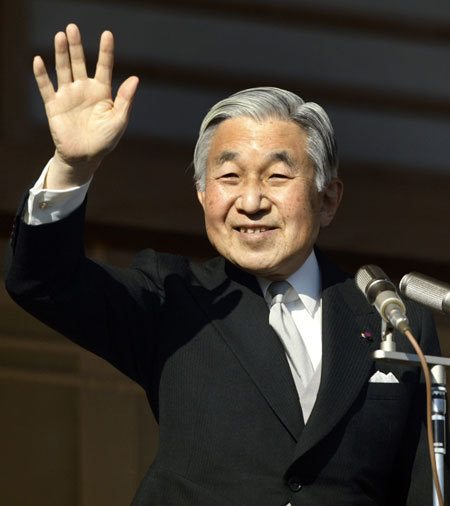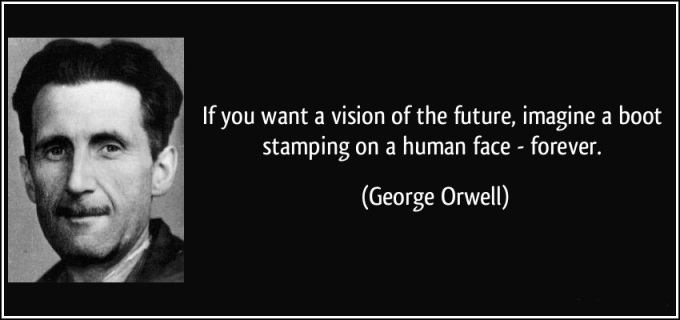The world, in its current state, is not sustainable. No reasonable person would argue that it is. This does not refer to population; there is more than enough land and food for all. Besides, populations tend to self-adjust based upon available resources. In other words, there is no need for a cull. Equity is the problem. Capitalism, in its current form, which has been adopted by nearly all the countries of the earth with a central bank (excepting North Korea, Iran, Cuba, and some small Pacific island nations – Monaco and the Vatican being exceptional cases) isn’t sustainable either. [I feel it is important to disambiguate this point further. The capitalist system which is in use today can be, and has been, referred to as crony-capitalism and/or disaster capitalism and does not reflect the tenets of pure capitalism. Adam Smith himself put the emphasis on local systems and stated that one should not take more than one’s share lest the entire system collapse. This is often left out of economic theories.] The problem then is, how do we change the system underpinning all our TBTF* sub-systems? It won’t be pretty, but it inevitably must be done. As Henry Kissinger (I am NOT a fan) famously said, “If there are things that have to be done, you should do them quickly.” Many people will undoubtedly suffer, and many of them will die. This horrid reality does not escape me. It is more than unfortunate that TPTB* have organized the world in such a way as to make this unavoidable. All we can do, as a community, is minimize this peril by helping each other make it through to the other side.
Anarchy
It’s not what you think it is. Anarchy is a state of total freedom, but not without consequence. Anarchy is not ‘natural law.’ Anarchy is quite the opposite. Anarchy allows individuals to retain their individuality. It does not mean that there are no longer any rules, or that rules do not apply. People still have to live together, after all. Anarchy simply puts the power in the hands of those affected. The concept of ‘mob-rule’ comes to mind when such things are discussed, but it need not. It can be argued that people are generally kind and compassionate and generous. We may have lost sight of this fact given our current state of economic inequity, but it remains a fact, nonetheless. How could we have survived as a species otherwise? As a social animal, community has always been the foundation of society.
Blockchain
Blockchain, very simply put, is a wholly transparent contract. It has no limits and can be applied to any human endeavour involving more than one person. Many people are intimidated by this techy-sounding phrase, but it is something, at its root, with which we are all familiar; only it is digitized, in order to make it common and accessible to all, and verifiable.
Crypto-currency
The world needs a global currency. Why should banks et al. make money from the exchange of one currency into another? Why should they have the power to create wealth and distribute it to whomever they please? Why should banks and central banks constrain human potential in order to turn a profit? What purpose do they serve anymore, anyhow? The banks (Bank of America, HSBC, et al.,) central banks (the Fed, ECB, et al.,) and uber-banks (IMF, BIS, et al.) have had all of humanity under their collective thumbs since they were conceived.
Which coin will be the standard? Will there be several as with Coca-Cola vs. Pepsi vs. Royal Crown? Will there be too many to count? As long as they are freely interchangeable, who cares, right? My personal feeling is that there will be many, but that all will be as interchangeable as good delivery gold bars from different banks, with no exchange rate. The closest comparison which can be drawn is the Linux operating system, which is open-sourced and comes in many ‘flavours’, all of which are compatible with most other versions.
De-centralization
It may just be time to bring back the city-state. Borders are illusory and they are political. Their time too, has passed. This is not a call to mass migration; on the contrary, it is an invitation for all to participate in the global economy without consideration for whence they were born, and without a need to re-locate, but without hindrance to do so, if desired. Under this new paradigm, there will be no need for entire populations to flee oppression or war. There will be no power structure to impose these conditions, and there will be no will of the people to engage in same.
Encryption
Privacy will not need any protection. Privacy has always existed. Be it through secret code, hidden retreats, occult groups, or VPN*, the dark web is nothing new. The need to protect it arises from those who would intrude, such as the state; but if people want to communicate privately, there is no reason they should not have the means to do so. Blockchain can provide this function. People don’t want to be nothing more than just a number. IBM tried that during WWII and the mental image stuck. People don’t want to be issued tattoos. On the other hand, people don’t seem to have a problem tattooing themselves. If we pick a number (or a hash) for ourselves, it becomes part of us. This is the key to being both public and private at the same time.
Freedom
We must be allowed to live our lives as we see fit. We must not be told that since we live in one particular place, we must do certain things with our time. We must not have to live our lives surveilled. It must not be assumed that we are all potential criminals. In order to acquire the freedom to live as we choose, we must either be emancipated or we must emancipate ourselves, and we’ve been waiting long enough to be emancipated. If it hasn’t happened by now, it just isn’t going to happen. It is time to take matters into our own hands and take the bull by the horns. But what do you do when you have a tiger by the tail? If you let go, it will eat you. If you hang on, you can do nothing else. Eventually your strength will wane, and a lot faster than the tiger’s. So what option is available? The only option left is to kick that fucking tiger in the balls so hard and so often that he will want to get as far away from you as fast as possible, instead of making you his meal. This is what we must do to the control structures, and the people who run them, set up to dominate our lives. We must make the job of ruling over us so disagreeable that none would want to have it. This is the nature of anarchy and the birth of freedom. Free to work in our chosen domain, free to raise our children and educate them with our values, free to do what we choose to do with our bodies and with our lives; these should not just be catchy clichés, they should be steps along the path to autonomy. We are adults, after all; it is time we started treating ourselves as such and acting like adults should act.
Globalism
Some of the tenets of globalism are noble and commendable, but the current crop of globalists are not the sort of people you would want in charge. The problem with it is that, under the current plan, the goals of globalism are to be implemented by force or by coercion. This cannot be acceptable. Certainly there should be a common currency. Certainly there should be more co-operation and less competition. Certainly there should be acceptance of individual beliefs and cultural differences. Certainly equality should reign; but not in the two-tiered Orwellian (or Clintonian) sense. Some should not be allowed to be more equal than others. Being ruled is so middle ages.
Hegemony
Hegemony will, for the first time, be organic and not imposed. Hegemony will no longer mean that an entity controls the whole, it will mean that the whole is one, and that ‘control’ is obsolete. The entirety of Earth’s population will have control over their own lives and society will necessarily move in a positive direction. The word ‘progress’ will finally have meaning as it will apply to the betterment of all mankind, not just a select few.
Internet
The internet, perhaps the greatest human development of all time, has made blockchain technology possible and relevant. The world-wide web is the ether through which all human interaction can take place, irrespective of time or location. It is anything to anyone at any time. It facilitates communication and has done more to shrink the size of the world than planes, trains, or automobiles combined. Without communication, co-operation is not possible. The internet is, to paraphrase Aristotle, the means by which the whole of humanity truly can be greater than the sum of its individual parts.
Joy
What other goal can be more noble, than to wish that all sentient organisms everywhere can experience eternal joy, in any form that it should take? Lasting joy is the best possible outcome.
Kin
Family is the nucleation point of society. Family is the seed. We must come to realize that ‘family’ and ‘community’ and ‘society’ and ‘civilization’ are all synonymous. We are all born of the same family, extended or not. We are all kin. If we learn to treat each other as such, only then will we be able to hope to treat any others we might meet along the way as equals, and learn from each other, and share with each other all the joys that make living a worthwhile endeavour for us all. If there are others out there, we are already family as we share the greatest commonality known: life itself.
Longevity
One of the only two reasonable goals of humanity (progress is meaningless without set goals,) longevity or immortality will be the one thing which makes patience into the true virtue it really should be. When time itself is not a factor in human decision-making, only then will the unattainable be within our grasp. Time is the ultimate constraint. Short-term realizations at the expense of long-term benefits will be a thing of the past. Risks will no longer need to be taken if all the time in the universe is at our disposal. Investigations into the mysteries of life will be complete. Succinctness will no longer trump truth.
Maturity
Maturity is the other of the only two reasonable goals of humanity. It is only when we reach maturity can our exploration of exoplanetary endeavours be justified. If we are the first in the universe to reach such a level, we should be beyond reproach as far as standards of morality toward all life forms are concerned. If we are not, we should be at a level beyond pettiness, such that we can engage with more advanced civilizations and share with them as we would share amongst ourselves. If we are to be the seed of intelligent life in the cosmos, we should then put forth the very best we have to offer.
Reset
It is coming, one way or another. It is very near, and people can feel it. There will be a transition, and it will be rough. Many will not survive it. The consequences of a reset would be, for the short term, disastrous. We should not kid ourselves. The JIT* delivery system would make a great many of us vulnerable to starvation, as most of us are nine meals from an empty pantry. Certainly, all the systems we rely upon to deliver and provide medicine, water, payments etc. could not and would not withstand the rapid transition to an anarchic state.
Ownership as a concept would have to be revisited. Essential factories would need to be owned and operated by the workers, as would water treatment plants, farms, hospitals, etc. There would be massive disturbances in all forms of manufacturing, processing, distribution, and not least of all, social services. Payments would be suspended, and the nature of salaries as compensation for work and their incremental nature would also need to be re-thought.
Robotics could be an enormous benefit, not a job-killer as it is perceived today. Robots could free all humans from meaningless work in order to pursue higher goals, spend more time with our children, help the community, or just sit under a tree. Automation of all the necessary goods and services is nothing to fear if we are all equal. There will always be jobs to do, but with so many people available to do them, nobody will mind doing an hour or two of work every month.
Education would benefit, as well. Instead of being forced to regurgitate mantra which benefits private industry, the field of education could be opened up to alternatives not currently discussed. Universities will morph into discussion groups and the PhDs will simply be those whose ideas are accepted. Paper credentials will become meaningless. Credentials will come with proofs.
Will there not be groups who will try to dominate? Yes, but their power will be limited as their small group can never gain an advantage over the rest. There will be no means by which a small group can come to dominate a larger one. Why shouldn’t those who hold even the most extreme views not be allowed to share them within their community? Segregation is generally seen as a bad thing. Self-segregation, on the other hand happens all over the world. From a motorcycle gang to a China-town to a support group, if those birds choose to flock together, whose to stop them? As long as there is no territory to fight over, all ideologies, while not necessarily being welcome, could be readily tolerated.
There will be a crash. When is not known, but soon is an apt estimate. The global economy is running on fumes, despite what the stock-pushing MSM is saying. The inevitability is such that preparations must be made. Stocking up on non-perishable foods is one thing, but preparing to abandon an over-arching system of control is just as important, perhaps more-so. Why should we allow TPTB* the time to get their shit together, as it were. Humanity will not wait for them to re-fasten the shackles they have burdened us with. It will move forward without them. We no longer need them. Their guidance was necessary in the times of rampant illiteracy, but is now irrelevant. We can do these things for ourselves. Good riddance.
Does this vision of the New World Dis-Order seem utopic? Does it look out of reach. Under the current system, it does. Fast-forward ten or twenty years, add blockchain to the mix, bring down all the overt control systems, and all the limitations on our species could easily be lifted. It will come at a price, but the alternative is a possible ELE*.
*Glossary:
- ELE – Extinction Level Event
- JIT – Just In Time
- TBTF – Too Big To Fail
- TPTB – The Powers That Be
- SHTF – (when the) Shit Hits The Fan
- VPN – Virtual Private Network
Recommended Resources:











